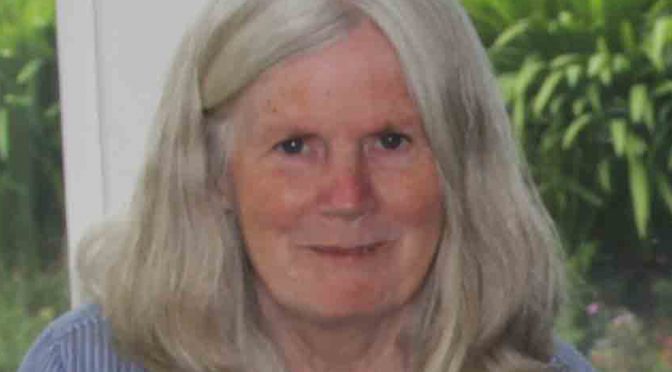
Speaking Personally: Maggie McSherry
1 Where do you think your commitment to justice and peace comes from?
I was aware that the manner of our experience of injustice and poverty is largely determined by accident of birth but that also injustice and poverty are not accidents but the consequences of structures that humanity has created.
Inspirational friends and public figures that I have been in contact with over the years have helped to give context and purpose to this understanding. During my time in the late sixties at St Mary’s College in Strawberry Hill the Vincentian community created a church of the future – a participatory priesthood of the laity was at that time and in that place a reality. Friends made then have continued to be an example of what we can and should try to be.
When we moved to the wilds of North Yorkshire our parish priest was a Columban who had been in China for many years and whose love for China stayed with him, he always hoped he would return, his ideas and the way he saw church was again inspirational.
We had hoped to develop a Justice and Peace group in my next parish, and Sr Lucy from Leeds Diocese Justice and Peace Commission came to speak, but our parish priest, a retired high-ranking navy chaplain was not encouraging, however Sr Lucy introduced me to the New Internationalist and Traidcraft which I have continue to support for the last forty years. It also lead me to enrol on a unit with the Open University with the unfortunately named “Third World Studies” and later when the boys were grown I did an MA in Development Studies at Leeds University which gave greater understanding of the need for structural change.
2 What are the most important areas of concern today?
The lack of respect and love of people and nations for each other and for the earth upon which we all depend. I don’t think it is possible to separate areas of concern, the connectiveness of our lives which Pope Francis describes so clearly in his encyclical letter “Laudato Si’”-On care for Our Common Home.
Powerful individuals and corporations take upon themselves the authority to slow or prevent progress. A major block to change is often that we don’t believe we can influence decisions. We are hampered in our task also by poor, uninspired, often partisan, leadership.
I am always surprised by the lack of awareness of our own power, our own responsibility – our own part in making the change, but also amazed by peoples’ generosity and how much they want to help.
3 What sustains your commitment?
Inspirational people, those I know and work with and those who work at a greater scale to take on the powerful, those who are prepared to get their hands dirty, their fingers burned. The task is great but if we don’t try what will we leave the generations to follow.
4 What are your hopes for a church like ours for the 21st century?
It is easy to list our personal failings and those of the church but it is the goodness and faith of others that helps me keeps my faith. I always use “we” in the Creed because without the other we are not a community, a community to serve and be served.
The challenges and inspiration of Pope Frances gives us a mandate to be an outward looking church, and this gives endorsement to the groups and organisations within the church to continue asking questions of us all and encouraging bishops and priests to be leaders in questioning the processes and consequences of actions by companies and governments. Within the opening statement in the encyclical letter Laudato Si’ Pope Francis says he “would like to enter into dialogue with all people about our common home”. This gives me great hope for our church.



